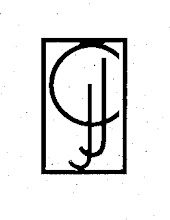 It’s March—as in March On, Press Forward, Advance, Progress. The month of March, then, seems entirely appropriate for honoring women (it’s Women’s History Month) and obsessing over a basketball tournament (March Madness is in full dribble). How best to acknowledge these disparate events on Lull? With a language lesson, of course!
It’s March—as in March On, Press Forward, Advance, Progress. The month of March, then, seems entirely appropriate for honoring women (it’s Women’s History Month) and obsessing over a basketball tournament (March Madness is in full dribble). How best to acknowledge these disparate events on Lull? With a language lesson, of course!Let’s start with this:
“Some of the comments on YouTube make you weep for the future of humanity just for the spelling alone, never mind the obscenity and the naked hatred.”
—Lev Grossman, in Time magazine, December 2006
—Lev Grossman, in Time magazine, December 2006
Klyde-Silverstein pulled this from Facebook because it pushed one of her buttons.

Before you read her rant, take a close look at the headline. What do you suppose spiked her blood pressure?
University of Northern Colorado Men’s and Girl’s BasketballLet’s play a game to see how easy it is to get these pairings correct. Match these words—women’s, male, gals, man’s, girl’s, wife, gentlemen—to their parallel counterparts in the list below:
1. ladies
2. woman’s
3. boys’
4. female
5. husband
6. men’s
7. guys
Now check your answers against this list:
1. ladies / gentlemen
2. woman’s / man’s
3. You’re right! There’s no match for this.
4. female / male
5. husband / wife
6. men’s / women’s
7. guys / gals
You don’t have to be able to parse a sentence to get these right. I would bet that even the person who wrote the bad headline could ace this quiz. The problem, then, is thoughtless writing rather than ignorance. If we think about WHY a pairing works, we’re more apt to get it right. After determining that it sounds right, we must next assess the following characteristics of the two words:
1. Number. Both words should be either singular or plural—not a combination of the two. In our example, the first word is plural and the second is singular. Already, we know we must change Girl’s to Girls.
2. Possessiveness. If one word is constructed as a possessive (e.g., Men’s), the other should be as well. In the Facebook example, both words are possessive. However, Men’s is a plural possessive and Girl’s is a singular possessive. The placement of the apostrophe in this instance determines the number: Inserted before the s makes it singular, after the s makes it plural. Girl’s should be changed to Girls’.
3. Equality. The two words should be of the same age/character/vernacular. Not “Ladies and Dudes” or “Men and Females.” The words in the example are unequal in age. If college males are considered “men,” then college females should be considered “women.” Now the correction we made above—Girls’—needs further adjustment: not Men’s and Girls’, but Men’s and Women’s.
This type of agreement is easy to achieve when we think it through. But when we don’t consider the three items discussed above, it’s just as easy to get the parallel construction wrong.
The Cranky Copy Editor focuses on the sexism underlying this example. It’s one of her pet peeves.
But I suspect one of the causes of this particular brand of sexism is our English vocabulary. We frequently use “girls” when we’d really prefer to use an equivalent to “guys.” Short of “gals,” which has an old-fashioned ring to it, we have no replacement. The more we refer to “women” as “girls” in our everyday conversations, the likelier we are to slip up in our writing.
Funny. There are at least 500,000 words in the English language (excluding technical and scientific terms), and more coined every year. Yet we haven’t found a suitable, casual stand-in for “women.” Until we do, be mindful of your pairings. Grammar Snobs everywhere will be grateful.
[The pic: My great-grandmother played on this 1908 basketball squad in Oklahoma.]



No comments:
Post a Comment